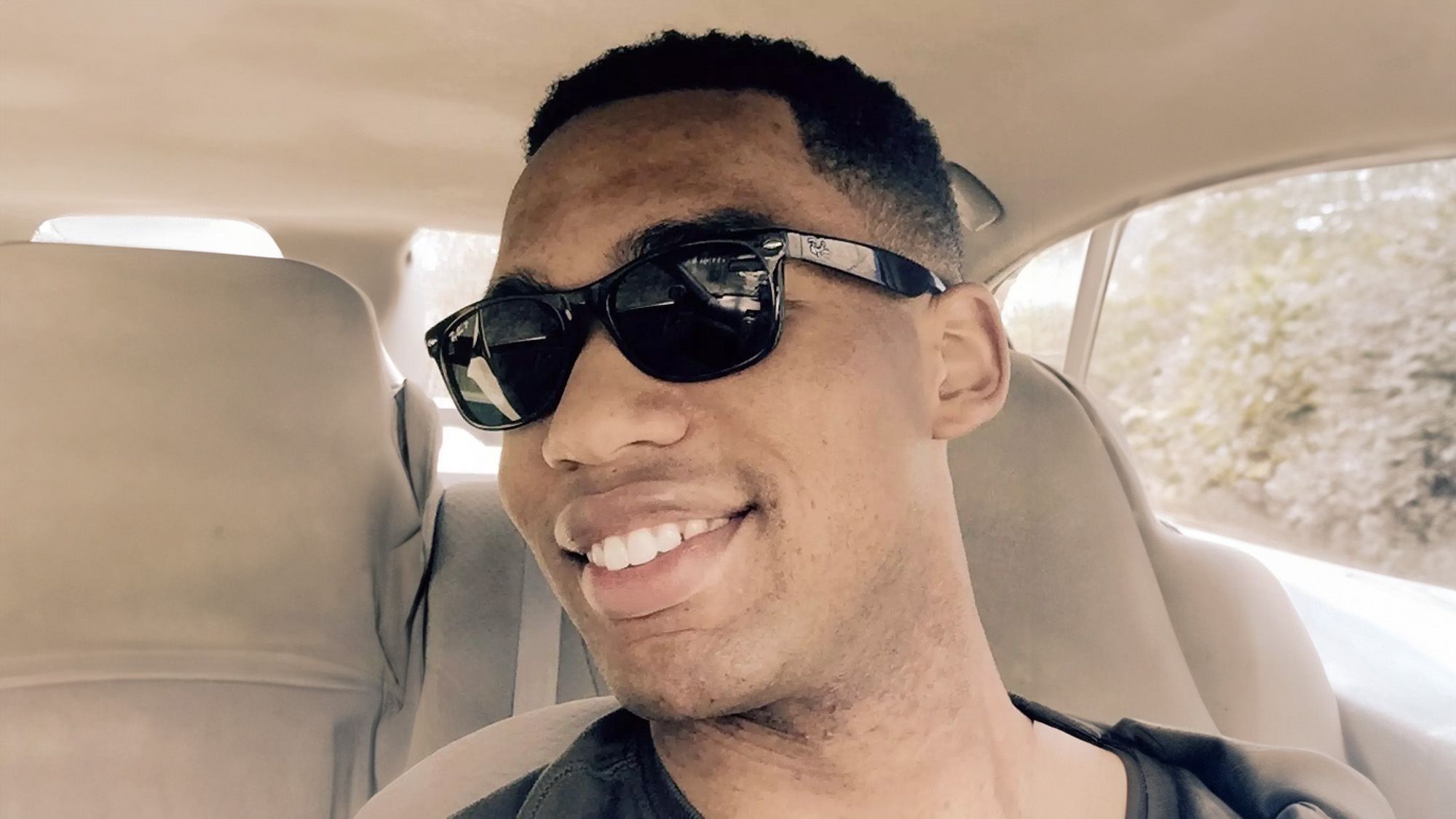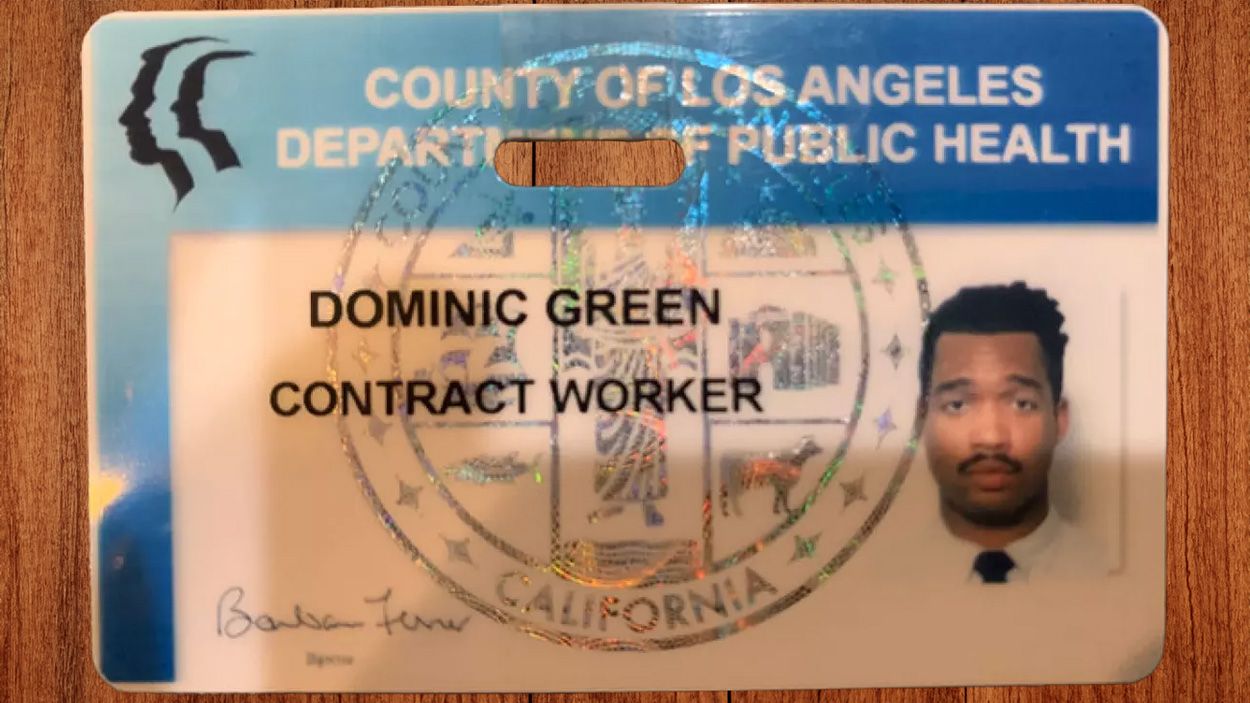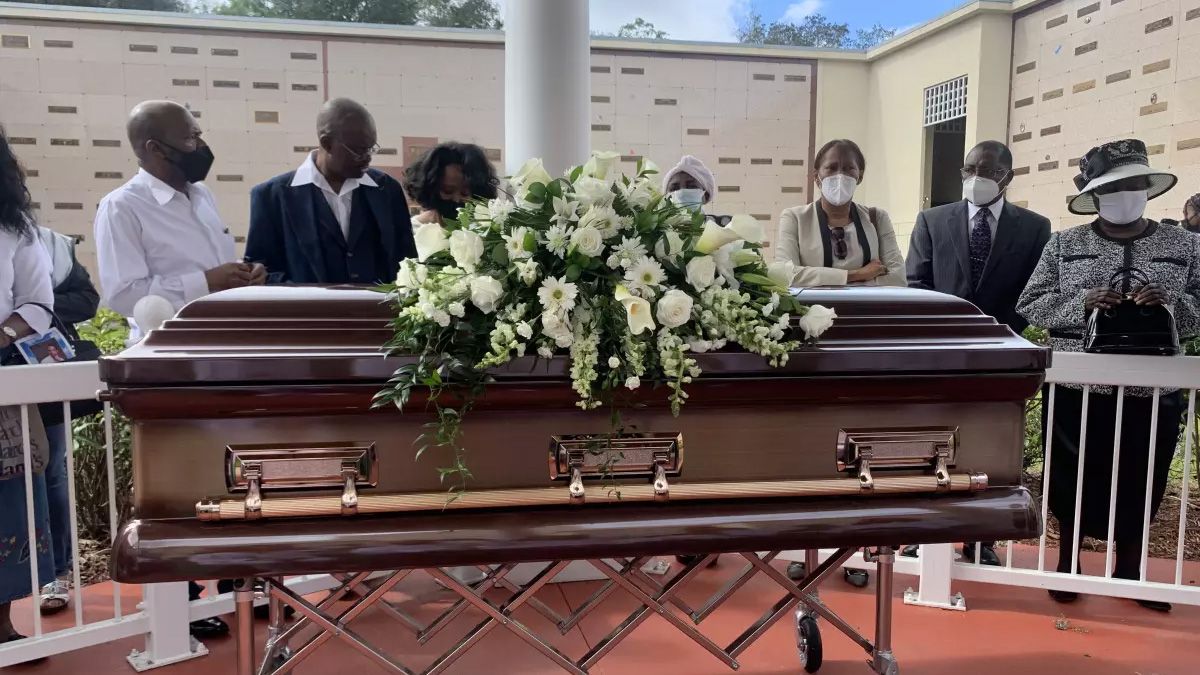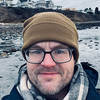Disconnected: The Death and Discovery of Dominic Green
As a young man navigates the challenges of remote work, isolation, and modern work culture he unexpectedly passes away. His story serves as a reminder of the importance of self-care and maintaining connections in a world that often feels disconnected and isolated.

On January 12, 2022, Dominic “Nico” Jules Green, a 28-year-old epidemiologist, concluded his remote workday from his modest Los Angeles apartment, promptly at 4:30 p.m., a practice he adhered to daily. Remarkably, he had never encountered any of the email recipients in person, nor had he ever met any of his colleagues face-to-face. Dominic had joined the workforce during the peak of the COVID-19 pandemic, a time when remote work, despite its unparalleled flexibility, inadvertently ushered in an era where colleagues were reduced to mere names on a screen, and personal interactions were confined to video calls and chat sessions. This shift in work dynamics had not only altered professional routines for many, including Dominic, but it also transformed the very essence of daily life, occasionally leading to unexpected repercussions.
Dominic Green's journey into the realm of public health began long before the world was gripped by the COVID-19 pandemic. Born on May 18, 1993, in Summerville, South Carolina, Nico, as he was affectionately known, traveled extensively as a military child, living in various locations including Florida, Missouri, Texas, Massachusetts, Virginia, and Japan. He graduated high school from Pine Forge Academy in Pennsylvania in 2011 and later attended Southern Adventist University in Tennessee. In 2016, he graduated from Fitchburg State University in Massachusetts with a Bachelor of Science degree in Exercise Physiology. After taking a sabbatical to work, he earned a Master of Public Health degree in Epidemiology from Loma Linda University in California in 2021. While at Loma Linda University, Dominic conducted extensive research on the impact of disease in underserved communities. His goal was to earn a doctorate degree in public health epidemiology and expand upon his research to help address health disparities in underserved communities.
As a student, he witnessed firsthand the shift in educational dynamics when, in 2020, his classes at Loma Linda University near San Bernardino transitioned to a remote format. With the campus closed, he was forced to move back home to his parents’ home in southern Michigan. The bustling campus life, once filled with face-to-face interactions, was replaced by virtual classrooms. The screens became the new lecture halls, and digital platforms took over traditional learning methods. Dominic wasn’t deterred and quickly adapted to this change in format, and by June of 2021, he had achieved his academic goal, a master’s degree.
While many envisioned their graduation as a grand event, walking across the stage to the sound of applause, Dominic's reality (like those of many other graduates) was different. His graduation ceremony was held as a drive-through event. It was a reminder of the times, where safety took precedence over tradition.
Dominic's academic journey was not just about acquiring degrees; it reflected his passion and commitment to making a difference. His choice to delve into public health showcased his desire to contribute to society. As the world grappled with a health emergency, Dominic's education equipped him with the tools and knowledge to be at the forefront, ready to combat the challenges that lay ahead.
With a freshly minted master's degree in hand, Dominic was poised to embark on a new chapter of his life. Like many young professionals before him, he chose Los Angeles as the place to start his new life. Leaving behind the familiarity of his parents' home in southern Michigan, Dominic packed his belongings and set out for the West Coast. He was drawn to the promise of a fresh start in a new city, even if it meant venturing into the unknown with few acquaintances to call upon.
When Dominic arrived in Los Angeles, he needed to find a place to live. Dominic's search for a place to call home led him to a one-bedroom apartment in Koreatown. The apartment, costing him less than $2,000 a month, was to him a symbol of his success and newfound independence. When his parents visited him in October, they witnessed a young man, proud and content, showcasing his new abode. From his signature white Converse shoes neatly lined at the door to the new dish towels in the kitchen, every detail reflected Dominic's meticulous nature.

Once settled in Los Angeles, Dominic secured a fully remote position as an epidemiologist, a role that resonated deeply given the ongoing pandemic. He worked as a contractor for the Los Angeles Department of Public Health, meticulously tracking COVID-19 cases. This job, his first after graduate school, was more than just a means to an end. It was a mission, a way for Dominic to apply his degree to real-world challenges. According to his coworkers, his dedication was reflected in his work. Dominic was now part of the 41% of white-collar workers who were fully remote. He had, in fact, never even met his coworkers face to face.
However, Dominic's move to Los Angeles was not just about career growth and personal space. It was a leap of faith, a step towards building a future. While he was engrossed in his job, tracking the very virus that had altered the course of his education and career, he remained hopeful. Hopeful for a time when the world would return to normalcy, and he could fully enjoy his new city.
Dominic Green was not just defined by his academic achievements or his budding career; he was a tapestry of unique traits and aspirations that painted a vivid picture of a young man with dreams larger than life. From a young age, Dominic's meticulous nature was evident. His parents often fondly recalled how, even as a child, he took pride in the little things, like making his bed without being told. This attention to detail was a trait that would follow him throughout his life, manifesting in everything from his organized living space to his punctual work habits.
Beyond his organized demeanor, Dominic was a planner, always looking ahead. He hailed from a family of professionals: his mother, a dedicated registered nurse, and his father, who had recently retired as a lieutenant colonel in the Air Force. This background instilled in him a sense of purpose and ambition. Known to be "very Type A" by those close to him, Dominic had charted out his life's milestones with precision. His current role as a contractor was just a stepping stone, a means to get closer to his goal—a doctorate in epidemiology. He envisioned using this qualification to make a tangible difference, especially in underserved communities.
But Dominic's dreams weren't limited to his career. He often spoke of finding a life partner, of settling down, and of building a family with five children. Standing over 6 feet tall, with an athletic build and a smile that could light up a room, Dominic was confident about this aspect of his future. His parents remarked on the juxtaposition of his life: while he was professionally soaring, living in a city bustling with life, the pandemic-induced isolation meant that his personal world had become much smaller.
Yet, even in the face of this solitude, Dominic found solace in the little joys of life. An introvert by nature, his primary social interactions before the pandemic were through his classroom and his daily gym sessions. In Los Angeles, these routines changed. To break the monotony of his apartment, he would often take long drives in his Toyota Camry, exploring the city and picking up dinner. And during weekends, he furthered his passion by engaging in academic research on sickle cell anemia. Dominic's life offers a glimpse into an individual navigating the complexities of life, love, and loneliness in a pandemic-ridden world.
As the holiday season approached, Dominic found himself at a crossroads. A big Marvel fan, he was eagerly anticipating the release of the new Spider-Man movie. His older brother, Adriel, had hoped to watch it with him during the holiday break. However, Dominic made the difficult decision to stay in Los Angeles, citing the need to study for a professional exam and complete a project for his part-time research job. Despite the disappointment, he managed to infuse a bit of humor into the situation, joking with his brother about needing bear spray for a future camping trip to Yosemite.
The following week, however, started a period of concern in the Green family. Dominic, who was always connected, even if busy, suddenly went radio silent. His parents, Joseph and Jeannine, grew increasingly worried as the weekend passed without any communication from their son. By Martin Luther King Jr. Day, their concern had escalated to alarm. A check on their family cellular plan revealed that Dominic's phone had been inactive for five days, and there was no activity in their joint bank account.
On the evening of January 17, Joseph contacted a Los Angeles number linked to a person who had sent two text messages to Dominic that same afternoon. The call was answered by Lisa Smith, a supervisor at the county public health department. Upon seeing the unfamiliar out-of-state area code, Smith inquired if the caller was Dominic, to which Joseph identified himself as Dominic's father. Smith shared that she had been worried about Dominic as she had not received any communication from him since the previous Wednesday. However, she also pointed out that Dominic was not technically an employee of their department.
Fearing the worst, they reached out to a local family friend to assist them. The friend met the police at Dominic's apartment to conduct a wellness check. The sight that awaited them was devastating. Peering through the blinds of Dominic's first-floor apartment, they could make out his motionless body on the bed, illuminated only by the blue glow of the aromatherapy diffuser on his nightstand. The coroner's investigator later said that he had probably been there for days and due to the advanced state of decomposition, he had to be identified by the few visible fingerprints on his hands.
As his parents cleaned out Dominic's apartment, they tried to piece together the final moments of their son's life. A partially eaten Chipotle chicken burrito, a new video game controller, and boxes of recently ordered clothes with tags still attached were the only clues they had. These mundane objects, now infused with a profound sense of loss, painted a picture of a young man who, in his final hours, was probably living his best life.
The aftermath of Dominic's passing was a whirlwind of emotions for the Green family. Grief, shock, and a desperate need for answers consumed them as they tried to come to terms with the sudden loss of their son. The process of preparing for Dominic's funeral was particularly challenging due to the state of his body. The coroner's investigator had informed them that Dominic was "not viewable," a term that haunted his parents as they made the necessary arrangements. In the end, they decided on a closed casket service, a decision that weighed heavily on their hearts.

The funeral ceremony was held on January 29, a somber occasion attended by friends and family who gathered to pay their respects and remember Dominic. His father, Joseph Green, delivered a heartfelt message to the attendees, urging them to prioritize their well-being and mental health. "Please know that no employer is going to care for you like your family," he said, a poignant reminder of the importance of maintaining connections in a world where remote work and isolation have become the norm.
In the days following the funeral, the Green family continued to grapple with the reality of their loss. The absence of Dominic, a young man with so much potential and a bright future ahead of him, was deeply felt by all who knew him. His colleagues at Healthcare Staffing Professionals, where he worked as a contractor, created an e-sympathy card filled with heartfelt messages and memories of Dominic. "Character is what a person does when no one is looking," wrote one colleague, a testament to Dominic's integrity and dedication.
As the weeks passed, the Green family received the final autopsy report, which revealed that Dominic had died of cardiomyopathy, a disease of the heart muscle. This diagnosis brought a small measure of closure to the family, as it answered some of the lingering questions about Dominic's sudden passing. However, it also raised new questions about the genetic implications for the rest of the family. As they navigated this new reality, the Greens found solace in the knowledge that Dominic's story had touched the lives of many, serving as a reminder of the importance of self-care and maintaining connections in a world that often feels disconnected.
Dominic's story is not just a personal tragedy; it reflects the broader challenges faced by many in the modern work culture. It highlights the need for a more holistic approach to employee well-being, one that considers the mental and emotional challenges faced by remote workers. The life and death of Dominic Green offer valuable insights into the nature of work and relationships in modern times. It serves as a call to action for individuals and employers alike to prioritize well-being and foster a sense of connection in a world that often feels isolated. As we move forward into a post-pandemic world, it is essential to carry these lessons with us and work towards creating a more supportive and connected society for all.
